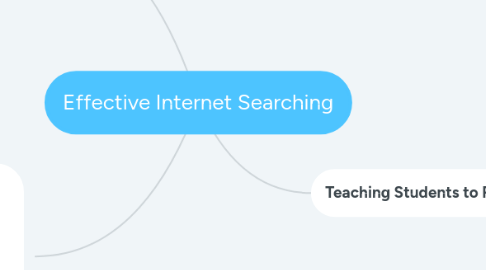
1. Suitable search engines for children
2. Evaluating Sources for Credibility
3. Teaching Students to Research
3.1. 1. Clarify
3.1.1. You could have a class discussion or small group conferences on brainstorming keywords, considering synonyms, generating questions etc. Time spent defining the task can lead to a more effective and streamlined research process.
3.2. 2. Search
3.2.1. It sounds simple but students need to know that the quality of the search terms they put in the search box will determine the quality of their results.
3.3. 3. Delve
3.3.1. Entering quality search terms is one thing but knowing what to click on is another. You might like to encourage students to look beyond the first few results. Let students know that many websites use Search Engine Optimisation to improve the visibility of their pages in search results. That doesn’t necessarily mean they’re the most useful or relevant sites.
3.4. 4. Evaluate
3.4.1. Students need to know how to search for the specific information they’re after on a website. Ensure students understand that you cannot believe everything you read. This might involve checking multiple sources. You might set up class guidelines that ask students to cross check their information on two or three different sites before assuming it’s accurate.
3.5. 5. Cite
3.5.1. Obviously, we need to inform students about plagiarism and copyright infringement while giving them the skills they need to avoid this. Give students lots of practice writing information in their own words, and show them how to use quotation marks and cite sources.
